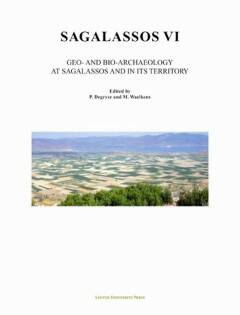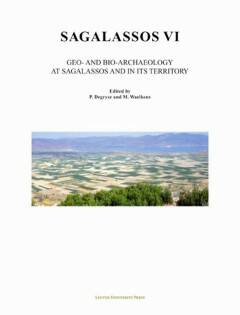
- Retrait gratuit dans votre magasin Club
- 7.000.000 titres dans notre catalogue
- Payer en toute sécurité
- Toujours un magasin près de chez vous
- Retrait gratuit dans votre magasin Club
- 7.000.000 titres dans notre catalogue
- Payer en toute sécurité
- Toujours un magasin près de chez vous
Sagalassos VI
Geo- And Bio-Archaeology in the Territory of Sagalassos
Description
Sagalassos 6Since 1990, the ancient Greco-Roman city of Sagalassos in southwestern Turkey has been the focus of an interdisciplinary archaeological research project coordinated by the Katholieke Universiteit Leuven. Sagalassos, a popular cultural attraction for visitors to Turkey, is located between a dramatic mountain range and a lush agricultural plain. It was first settled around the fourteenth century B.C.E. and various kingdoms controlled the region in turn before it became a valuable hub of trade in the Roman Empire. Sagalassos was known especially for its olives and for its elegant red-slip tableware.The essays collected in this book reveal how the meticulous systematic and interdisciplinary reconstruction of the ecology and economy of the site and its territory has enhanced our understanding of the ancient settlement and its inhabitants beyond the traditional aspects of classical archaeology in Asia Minor. Highlighting geo-archaeological, archaeometrical, and bio-archaeological work performed during excavations and surveys between 1996 and 2006, this important book's insights greatly enhance the promotion of real interdisciplinarity in classical archaeology.
Spécifications
Parties prenantes
- Editeur:
Contenu
- Nombre de pages :
- 342
- Langue:
- Anglais
- Collection :
Caractéristiques
- EAN:
- 9789058676610
- Date de parution :
- 15-01-09
- Format:
- Livre broché
- Format numérique:
- Trade paperback (VS)
- Dimensions :
- 208 mm x 272 mm
- Poids :
- 1156 g






